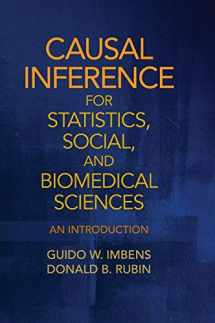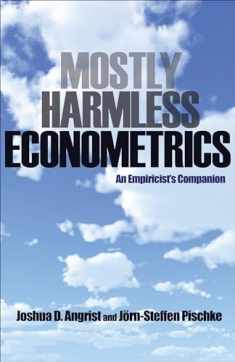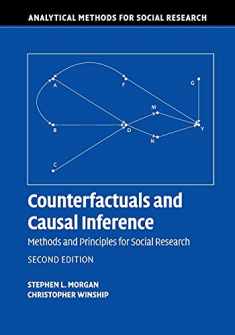
Causal Inference for Statistics, Social, and Biomedical Sciences: An Introduction
Book details
Summary
Description
Most questions in social and biomedical sciences are causal in nature: what would happen to individuals, or to groups, if part of their environment were changed? In this groundbreaking text, two world renowned experts present statistical methods for studying such questions. This book starts with the notion of potential outcomes, each corresponding to the outcome that would be realized if a subject were exposed to a particular treatment or regime. In this approach, causal effects are comparisons of such potential outcomes. The fundamental problem of causal inference is that we can only observe one of the potential outcomes for a particular subject. The authors discuss how randomized experiments allow us to assess causal effects and then turn to observational studies. They lay out the assumptions needed for causal inference and describe the leading analysis methods, including, matching, propensity score methods, and instrumental variables. Many detailed applications are included, with special focus on practical aspects for the empirical researcher.


We would LOVE it if you could help us and other readers by reviewing the book
Book review





